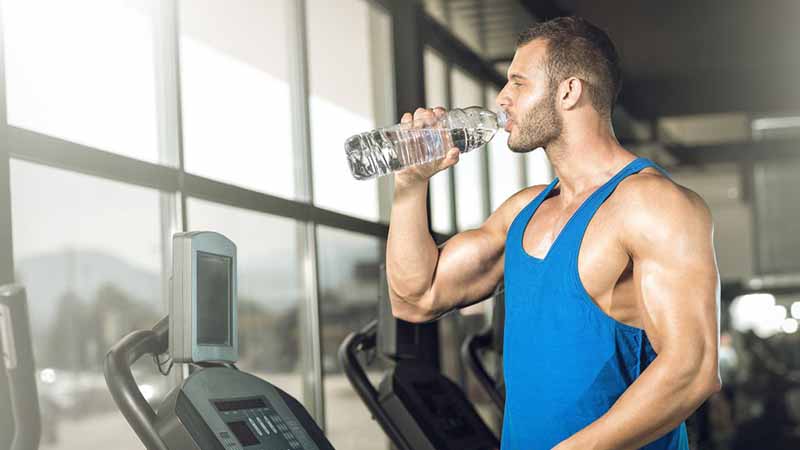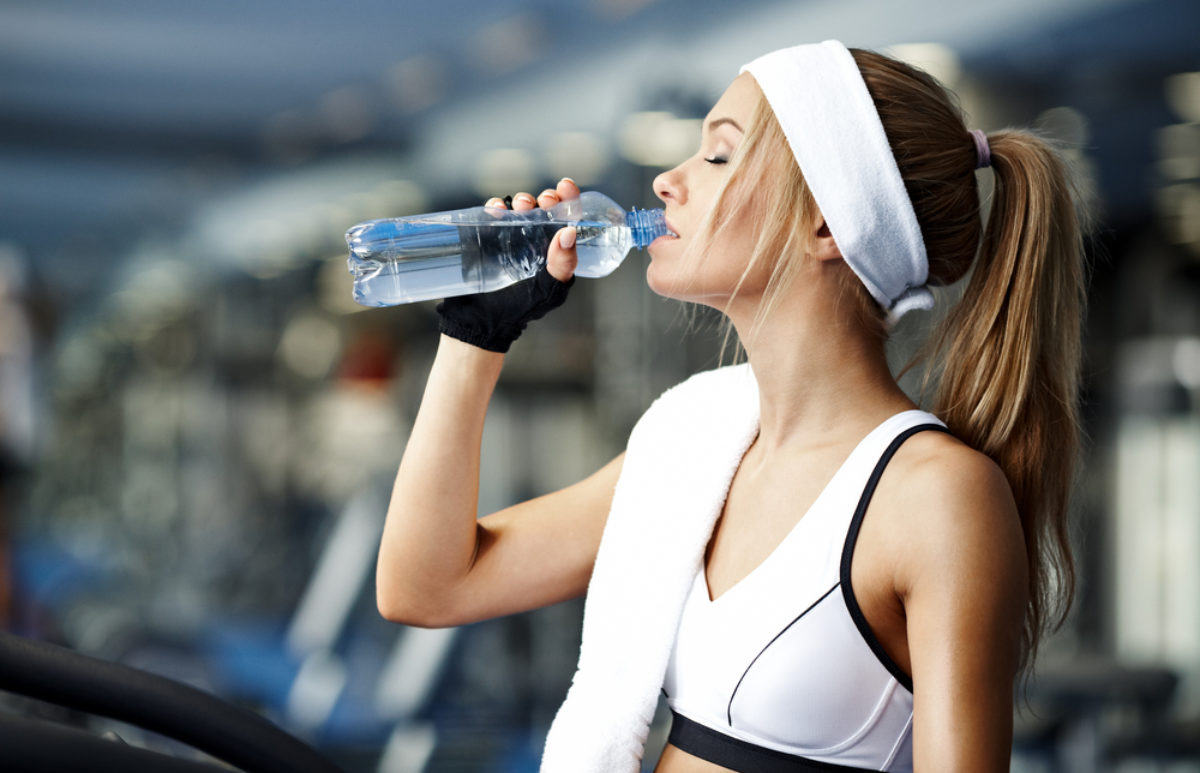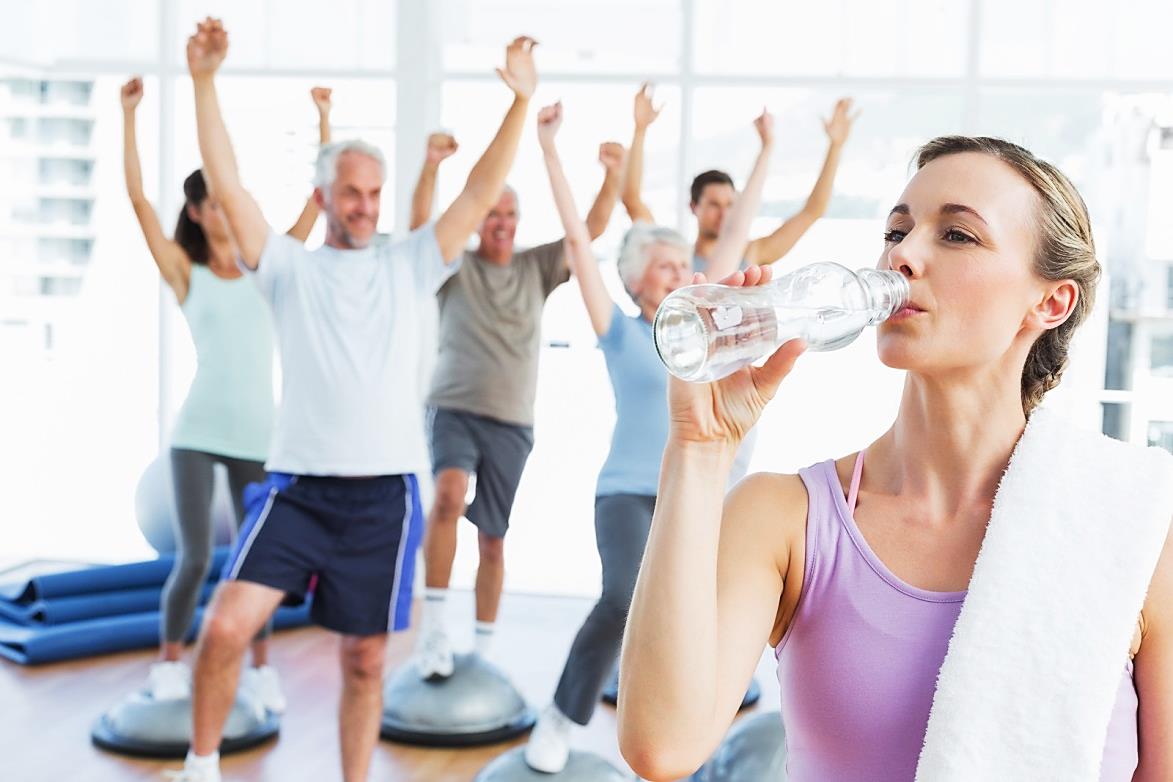Hydration And Fitness - The Dynamic Duo For Success
Discover how proper hydration enhances fitness performance. Essential hydration and fitness tips for optimal results.
Author:Karan EmeryReviewer:James PierceFeb 20, 20242.2K Shares86.1K Views

Hydration plays a crucial role in fitness and overall well-being, yet it's often overlooked by many individuals striving to achieve their fitness goals. Proper hydration is essential for optimizing athletic performance, supporting recovery, and maintaining overall health. In this guide, we'll explore hydration and fitness, how it affects physical performance, and practical strategies for staying adequately hydrated during exercise.
The Importance Of Hydration In Fitness
Hydration is vital for several physiological processes that impact athletic performance. Water serves as a medium for nutrient transport, temperature regulation, and waste removal within the body. During exercise, the body loses water through sweat, which helps regulate body temperature but can also lead to dehydration if not replenished adequately.
Effects Of Dehydration On Physical Performance
Dehydration can have a significant impact on physical performance, impairing both endurance and strength activities. Even mild dehydration can lead to decreased coordination, fatigue, and reduced cognitive function, all of which can compromise exercise performance. Inadequate hydration can also increase the risk of heat-related illnesses such as heat exhaustion and heatstroke, especially during intense or prolonged exercise in hot environments.
How Much Water Should I Have When Working Out?
Since every person is different, there are no set guidelines for the appropriate amount of water to drink when working out. Your sweat rate, the temperature and humidity of the surrounding air, the clothes you are wearing, and the duration and intensity of your workout are all important considerations.
If you suffer from certain illnesses, such as diabetes, heart disease, or cystic fibrosis, you might need to drink more water. Certain drugs may function as diuretics, increasing the amount of fluid lost by the body.
The following fundamental recommendations for water consumption before, during, and after exercise have been made by the American Council on Exercise:
- Have 17 to 20 ounces of water two to three hours before to beginning an exercise regimen.
- Eight ounces of water should be consumed 20 to 30 minutes before to doing out or throughout your warm-up.
- When exercising, sip 7 to 10 ounces of water every 10 to 20 minutes.
- Thirty minutes or less after working out, sip eight ounces of water.
To determine how much water to drink more precisely, athletes may want to track how much fluid they lose while exercising (16 to 24 ounces of water for every pound of body weight lost).
How About Energy Drinks?
To be hydrated, most people only need to drink water. However, a sports drink might be beneficial if you want to work out for more than an hour at a high intensity. Sports drinks contain calories, potassium, and other nutrients that can help you perform for longer by supplying electrolytes and energy.
Pick a sports beverage carefully. They may have high salt content and are frequently heavy in calories from added sugar. Verify the serving size as well. Multiple servings may come in a single bottle. You might need to double or triple the amounts listed on the nutrition facts label if you drink the full bottle.
Caffeine is an ingredient in certain sports drinks. Take caution not to increase the amount of caffeine in your diet if you drink a sports drink that contains caffeine. Your body may experience a diuretic impact from caffeine. This implies that more frequent urination may be necessary. Juice and soda, which are high in sugar, are not good choices when it comes to staying hydrated.
Hydration Strategies For Optimal Performance
Let's learn some hydration and fitness strategies:
- Monitor Hydration Status -Pay attention to signs of dehydration, such as thirst, dark urine, dry mouth, and fatigue. Weighing yourself before and after exercise can also help assess fluid loss.
- Choose the Right Fluids - Water is generally the best choice for staying hydrated during exercise, but sports drinks can be beneficial for longer or more intense workouts, as they provide electrolytes and carbohydrates to fuel performance and aid in hydration.
- Consider Environmental Factors - Exercise intensity, duration, and environmental conditions (such as temperature and humidity) can influence fluid needs. Adjust your hydration strategy accordingly to account for these factors.
- Personalize Your Hydration Plan -Hydration needs can vary depending on factors like body size, sweat rate, and individual tolerance. Experiment with different hydration strategies during training to find what works best for you.
- Incorporate Electrolytes - Electrolytes like sodium, potassium, and magnesium are essential for fluid balance and muscle function. Consider consuming electrolyte-rich foods or beverages, especially during longer or more intense workouts.
Can I Consume Too Much Water?
It's true that you can consume too much water, and if you're not also getting enough electrolytes, this will cause your body's fluid balance to be thrown off (hyponatraemia). This may cause nausea and a bloated feeling; in severe cases, it may even be fatal. Recent years have witnessed cases of this in large city center marathons where runners drank excessive amounts of simple water.
Recall that you must replace lost electrolytes in addition to lost liquids. If you run for longer than four hours, you should follow your thirst; stay away from large amounts of water and stick to sodium-containing sports drinks.
Should I Abstain From Alcohol?
While it's not required to abstain from alcohol while training, consuming alcohol the night before a big event or extended training session can have a detrimental impact on your performance.
Alcohol can impair your ability to get a good night's sleep, dehydrate you, make you sluggish, and hinder your capacity to recover. Thus, the recommendation is to abstain from alcohol the day before a function. It would be a pity to underperform for a few missed drinks after months of intense training!
If you do choose to drink, limit yourself to one beverage and make sure it is accompanied by food. It is not recommended to drink after exercising if you haven't had enough water to make up for the fluids you lost. Aim to adhere to low-risk drinking recommendations, which call for no more than 14 units per week and abstaining from alcohol the day before an occasion.
Hydration And Fitness - FAQs
Why Is Hydration Important For Fitness?
To replenish the fluids you lose through perspiration during exercise, you must consume fluids. In this manner, you can lower your chance of heat stress while maintaining regular bodily functions and performance levels.
What Are The Guidelines For Staying Hydrated During Exercise?
Guidelines include pre-exercise hydration, consuming fluids during exercise at regular intervals, and rehydrating post-exercise to replace fluids lost through sweat.
What Are The Signs Of Dehydration During Exercise?
Signs of dehydration include thirst, dark urine, dry mouth, fatigue, dizziness, and reduced exercise performance.
Are Sports Drinks Better Than Water For Hydration During Exercise?
Sports drinks can be beneficial for longer or more intense workouts, as they provide electrolytes and carbohydrates to fuel performance and aid in hydration.
How Does Hydration Affect Physical Performance?
Muscle tiredness is a result of dehydration and might raise the chance of injury. Maintaining proper hydration helps lessen the chance of injury and muscular weariness. Athletes' core body temperature increases after exercise. The body reacts by sweating to release extra heat and prevent overheating.
What Are Two Methods Of Hydrating The Body After Exercise?
After workouts, there are two primary methods for replenishing your body's fluids. The simplest and most popular approach is to stay hydrated. To replace lost fluids, people usually drink water or different sports drinks. Intravenous fluid administration is an additional, less popular approach.
Conclusion
Hydration is a critical component of fitness and athletic performance, impacting endurance, strength, and overall health. Proper hydration supports optimal physiological function, helps regulate body temperature, and reduces the risk of dehydration-related complications during exercise.
By following hydration and fitness guidelines, monitoring hydration status, and personalizing your hydration plan to meet individual needs, you can optimize performance, support recovery, and stay healthy and hydrated during workouts. Remember that staying adequately hydrated is not only essential for fitness but also for overall well-being, so make hydration a priority in your exercise routine.
Jump to

Karan Emery
Author

James Pierce
Reviewer
Latest Articles
Popular Articles

